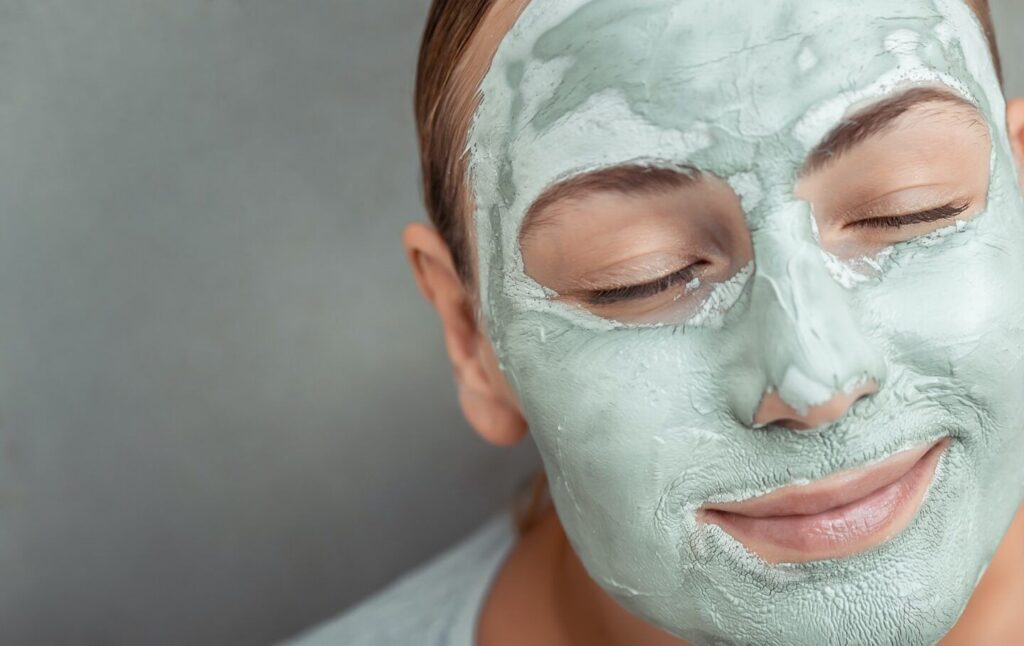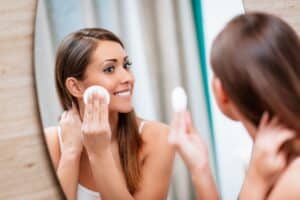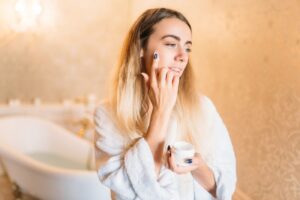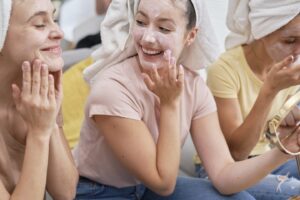A healthy skin up to in an old age.
As the skin ages, its functions deteriorate. This makes ageing skin more susceptible to a variety of disorders and diseases. But with the right preventive measures, the skin remains healthy into old age.
Like all organs, the skin is also subject to aging processes. The skin becomes thinner, changes in the skin structure occur and its functions deteriorate. As a result, the skin becomes more fragile and less resilient. Dermatologists speak of “dermatoporosis” in reference to osteoporosis,” explains Prof. Markus Braun-Falco, dermatologist in Munich, Germany.
Aging processes make themselves felt in all skin layers: The pH value of the skin surface increases and the skin flora can become unbalanced. The composition of the sebaceous and sweat gland secretions as well as the lipids in the uppermost skin layer change. This impairs the skin’s barrier function. The skin can bind less moisture and tends to dryness and itching.
In addition, the immune defense weakens and the skin becomes more susceptible to infections. The interlocking between the epidermis and dermis flattens and the skin becomes more vulnerable. Blood circulation is reduced and the skin is not as well supplied with oxygen and nutrients. Wounds heal less well. The collagen and elastic fibre structure in the dermis is altered. In addition, the subcutaneous fatty tissue is reduced. The skin loses its elasticity and resilience, wrinkles appear.
Good skin care and early treatment are essential
Changes of the age skin can disturb thus not only cosmetically, but favor also skin problems and diseases, so professor brown Falco. Natural skin aging processes can hardly be influenced. Apart from natural (intrinsic) skin aging, however, external (extrinsic) factors also play a decisive role. The avoidance of additional “aging agents”, good skin care and early treatment of skin problems help to keep the skin healthy into old age.
The most important thing, Professor Braun-Falco emphasizes, is a sensible use of UV light and good sun protection – from childhood on and for life. Because sun and Solarium strengthen not only the folds, a so-called Elastose, but are also the most important risk factor for the emergence of skin cancer. Light skin cancer develops mainly on the sunny areas of the hairless scalp, the forehead, the bridge of the nose and also on the lower lip as well as on the ears and the back of the hands.
Rough, crusty skin changes or nodules that do not want to heal or even bleed repeatedly should be presented to the dermatologist, advises Professor Braun-Falco. Since such changes can easily be overlooked, however, regular skin cancer screening should be taken up with the dermatologist, who inspects the body from head to toe for light as well as black skin cancer.
The right skin care helps to counteract dry skin. Especially elderly people, whose skin tends to be dry anyway and is limited in its ability to regenerate, should pay attention to a gentle body cleansing in order not to additionally strain the skin barrier. If soap is necessary at all, pH-neutral washing substances – sparingly! – should be used. And: “To support the barrier function, apply plenty of cream to the skin”, Professer recommends Braun-Falco. But do not use Vaseline or other fat preparations, but modern moisturizing, refatting products. Favorable are ingredients such as skin-related lipids and ceramides as well as natural moisturizing factors such as urea or hyaluronic acid.
- Overheated rooms additionally dry out the skin. Therefore, sufficient room humidity should be ensured. And do not forget to drink enough – even in winter!
- If an inflammatory dehydration eczema has already developed, the dermatologist should be consulted, recommends Prof. Braun-Falco. Severe itching should also be clarified.
Elderly people often suffer from diseases that can be an additional burden on their skin health. Diabetics, for example, often have particularly dry skin and an increased risk of skin infections and wound healing disorders, according to Professor Braun-Falco. In cases of incontinence, urine or stool can attack the skin barrier. In immobile elderly people who are dependent on a wheelchair or bedridden, pressure points can occur, particularly on the coccyx, elbows or heels. Good skin protection and early treatment of skin problems help to keep the skin healthy and prevent complications.








